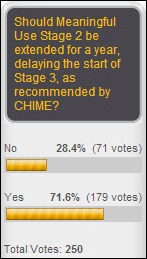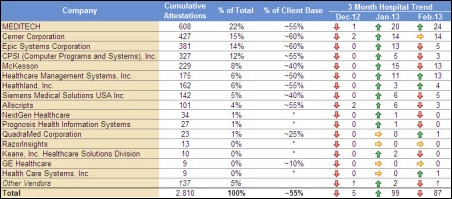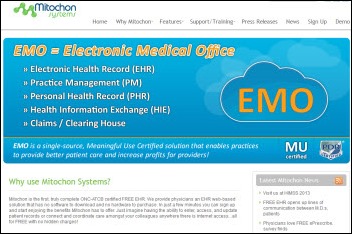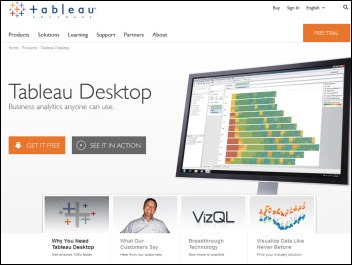For the broader community, Neil Pappalardo was an important person within the community well beyond the impact he had on…
Monday Morning Update 5/20/13
From The PACS Designer: “Re: Microsoft’s updated BAA. Microsoft has released an update for its Business Associate Agreement to encompass more secure communications tools for HIPAA compliance. The changes provide for healthcare organizations to leverage cloud solutions to improve clinician productivity, care team communication, and care transition coordination while maintaining compliance with the recently updated Omnibus HIPAA Final Rules.”
From Laboratorian: “Re: University of Michigan. Goes live June 1 with a massive IT rollout. This includes a new Epic (Denali) implementation and a completely new LIS, an experimental version of SCC-Soft being used at U-M for the first time. The LIS rollout, in particular, is particularly audacious in scope, being the culmination of a seven-year implementation cycle. Barcode-based tracking of both tubes and surgical pathology specimens will be on par with the level of automation seen at BML labs in Japan. The spatial location of every asset in lab space will be tracked in real time. The project benefitted from co-development of code with support from U-M’s own software engineering teams. Nearly 2.5 million lines of new code above base SCC product will drive this new version.” SCC is often forgotten as maybe the leading LIS vendor for big health systems, and writing 2.5 million lines of new code is just crazy. Obviously Beaker wasn’t going to do the job for UM, although it’s improving to the point that some larger Epic customers are cautiously committing to it.

More than two-thirds of respondents think that Meaningful Use Stage 2 should be extended for a year before starting Stage 3. New poll to your right: CMS released hospital Medicare pricing information for the top 100 DRGs. How valuable is that information to the public?
Jamie Stockton of Wells Fargo Advisors sent over his monthly summary of hospital EHR attestations by vendor. Customers of the big multi-national corporations whose business is mostly not healthcare IT (McKesson, Siemens, and GE) are the clear laggards.
Just in case you are wondering what it would be like to have HIMSS darling and cardiologist Eric Topol, MD as your doctor, ponder this quote from an NBC fluff piece from January that I just ran across: “These days I’m actually prescribing a lot more apps than I am medications.” He claims that up to 80 percent of the 20 million echocardiograms performed each year could be replaced by in-office smart phone tests, saving the healthcare system $13 billion per year. In a stunning piece of investigative journalism, the on-camera talking head (also a doctor) who has clearly performed her research convinces him to eat tortilla chips and goads him into saying positive things about his own books and devices.
EHR vendor Mitochon Systems notifies its customers that it will shut down its free cloud-based EHR service in mid-June. The company isn’t sure how doctors will retrieve the data they’ve entered on patients before the system is turned off, but says it will come up with something.
Data visualization software vendor Tableau Software, whose product is popular in healthcare, raised $254 million in its Friday IPO as shares soared 64 percent. I’ve played around with it a couple of times and it’s pretty cool – there’s a free trial download on the site.
Sheila Sanders, VP/CIO of Wake Forest Baptist Medical Center (NC), will step down effective May 31. The hospital says she’s leaving the $465K job for personal reasons that are unrelated to its struggles with Epic.
CareWire names advisors Ken Saitow and Phil Hotchkiss as president/CEO and EVP/chief product officer, respectively.
Encore Health Resources CEO Dana Sellers was recognized Friday, May 17 as a Distinguished Engineering Alumna by the Cockrell School of Engineering at The University of Texas at Austin. She was also named Friday as a finalist for the Ernst & Young Entrepreneur of the Year for the second consecutive year.
James Holtzman is promoted from CFO to CEO of Prognosis Health Information Systems.
Terry Boch (JET Health Solutions) joins Wellcentive as SVP of sales and marketing.
Susan K. Newbold PhD, RN-BC, director of Nursing Informatics Boot Camp, is selected as one of the 2013 “Women to Watch” by the Nashville Medical News.
MD Anderson, which just announced Epic as vendor of choice, will freeze wages, cut back on hiring, and postpone construction projects, hoping to offset an anticipated 2014 financial shortfall that it blames on the federal government (the Affordable Care Act, the budget sequester, and federal deficits) even though its rapidly increasing operating expenses seem to be its primary problem.
A controversial decision by Britain’s NHS allows life sciences and insurance companies to buy access NHS’s patient-identifiable data (“bespoke patient-level abstracts), even providing companies with an Excel worksheet to calculate their cost.
Partners HealthCare System (MA) made a $133 million profit in the latest quarter even after it took a $110 million accounting charge to write off computer systems slated for replacement. Most of that came from investment income, as operating income dropped from $41 million last year to $5 million.
Vince covers Part 1 of the HIS-tory of Allscripts this week (more specifically, TDS, which passed through many hands before landing in the Allscripts lap via its acquisition of Eclipsys.) Vince also scored a major coup for upcoming episodes – he e-mailed Judy Faulkner at Epic and asked if could talk with her about the company and she invited him to meet with her in Verona, which he did last week and is still gushing about. Those are going to be some great HIS-tory installments.
Sponsor Updates
- Carl Fleming of Impact Advisors raised $6,000 for St. Baldrick’s Foundation by having his head shaved at Impact Palooza 2013.
- Sunquest Laboratory v 7.0.1003 is certified as an EHR module by CCHIT.
Contacts
Mr. H, Inga, Dr. Jayne, Dr. Gregg, Lt. Dan, Dr. Travis.
More news: HIStalk Practice, HIStalk Connect.















Re: U of M – that sounds like an incredible though long LIS implementation and I look forward to hearing how it works out. There’s little room for slowdowns in the lab.
Dr. Topol’s leadership in evangelizing mobile apps is to be lauded. Still, there are many bad apps that will provide incorrect diagnosis – recently seen in UPMC’s study where melanoma diagnosis was largely missed by the apps. (http://archderm.jamanetwork.com/article.aspx?articleid=1557488)
Also, Univ of Michigan’s new LIS sys must be very good. On average, Labs are the most important results and so, this will bring many benefits. The claim “The spatial location of every asset in lab space will be tracked in real time” is technologically very difficult to achieve, and let’s await details.
Eric Topol, MD is smiling in the background of the echocardiogram (poor images) shots like a butcher’s dog as he proselytizes the devices from which he is profiting.
Years back, I repeatedly saw him on the cardiology lecture circuit pushing whatever was hot at the time, including TPA for heart attacks anangioplasty and stents for opening coronary arteries (many of shich did not need to be opened at the time), all which cost $millions are were over utilized.
Now, he is on to promoting the apps, though, I see now what Apple is going to do with its i-Watch.
Understand that MD Anderson selection committee (docs) actually selected Cerner with it’s mature oncology module, but ended up being overruled by the UT System to buy Epic.
With computer science being more art than science, I often wonder when people brag about the number of lines of code written to solve a problem. Less is more.
Need proof? Just ask McKesson. One of the reasons Dave Souerwine publicly cited for the Horizon failure was the thousands of lines of undocumented program code buried deep inside all of the program executables.
As a programmer, I’m most proud of the single line solutions I write.